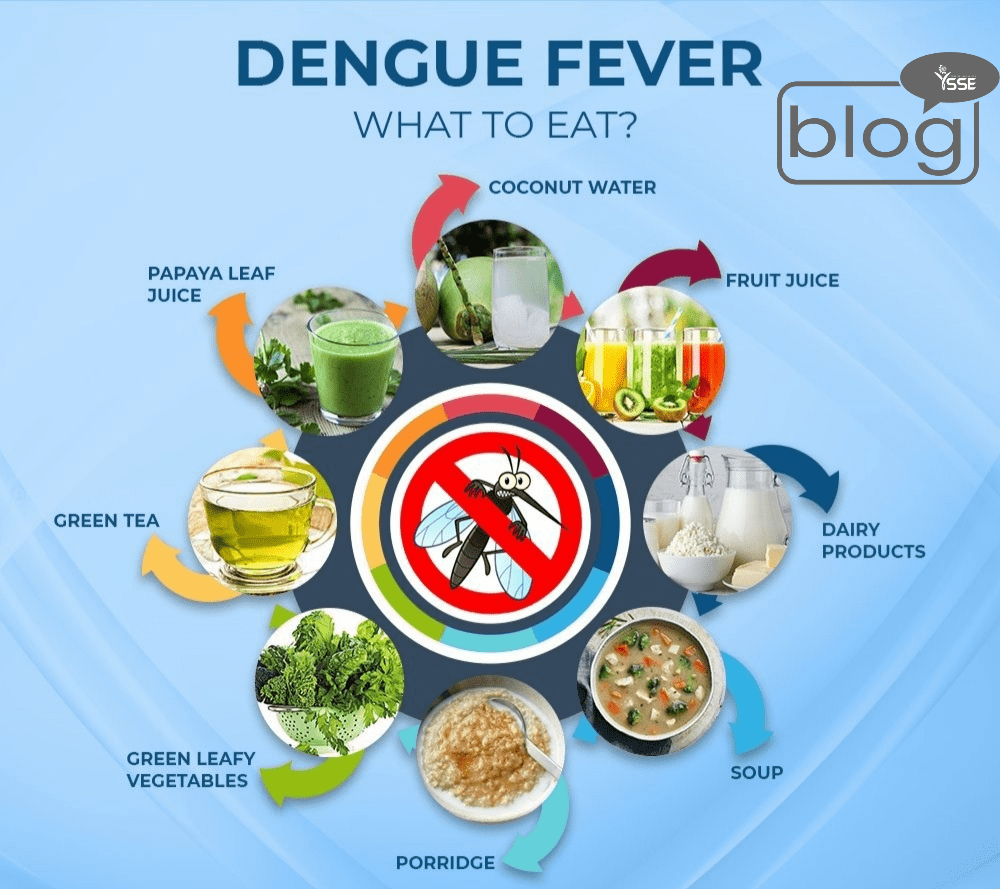Within the past few months, an extraordinary crisis has unfolded in Bangladesh known as dengue fever. This horrifying ailment has shattered all historical records this year, leading to an escalating number of fatalities that currently stands at 444 Dengue fever is an infection caused by the dengue virus. It mainly spreads through the bites of mosquitoes. This disease primarily spreads through mosquito bites, and it presents a significant health challenge in tropical and subtropical regions. Consequently, it’s essential for patients to manage their platelet levels to support their recovery.
This article explores the concept of a “Dengue Resistant Diet,” which focuses on consuming foods that can enhance production and overall well-being.
Understanding Dengue Fever and Platelet Levels ;
Dengue fever is caused by four related viruses that are transmitted through bites, from Aedes mosquitoes. Typical signs of dengue fever consist of having a body temperature, experiencing headache, feeling muscle and joint discomfort, developing a skin rash and feeling exhausted. Platelets, also known as thrombocytes, are essential components of the blood clotting process. They contribute to preventing blood loss by forming clumps within blood vessels, effectively stopping bleeding.
To be safe from dengue it is suggested to avoid mosquito-dense areas. But in a country like Bangladesh, it’s almost impossible to do so. So, what we can do is keep our platelet levels high through a healthy diet.
Platelet-Boosting Nutrients
When you’ve got dengue, it’s really important to eat foods rich in certain vitamins and nutrients. They help keep your platelets normal and your body healthy while you recover. Some notable ones include: vitamin K, iron, folate B12, vitamin C, and omega-3s.
- Vitamin K: Vitamin K is essential for proper blood clotting and platelet function. To obtain it, it’s advisable to consume plenty of dark greens such as spinach and kale. Iron prevents anemia and helps your body make new platelets. Get iron from lean meats, beans and fortified cereal.
- B12: B12, along with folate, is essential for producing red blood cells and platelets.
- Eggs, dairy, and seafood have good amounts of both. Vitamin C is an antioxidant that boosts your immune system and helps make collagen for blood vessels. Citrus fruits, avocados and nuts are easy ways to get C.
- Omega-3: Lastly, omega-3 fatty acids reduce inflammation and improve platelet function. Fatty fish like salmon and mackerel also have flaxseeds, flaxseed oil and Chia seeds are full of them.
Overall, focusing on those nutrients can really help your body bounce back from dengue faster. Consuming a balanced diet with the aforementioned foods can be more effective in maintaining healthy platelets and faster recovery.
Native Common Foods to Boost Platelets
- Papaya and Papaya Leaves: In research conducted by the Asian Institute of Science and Technology based in Malaysia, it has been observed that the juice of papaya leaves can help rapidly increase the platelet count in the blood of patients suffering from dengue fever. Ripe papaya juice can also increase platelets.
- Sweet Pumpkin and Pumpkin Seeds: Sweet pumpkin contains Vitamin A, which is essential for platelet production in the blood. To increase platelet levels in the blood, you can regularly consume sweet pumpkin
- Lemon Juice: Lemon juice is rich in Vitamin C, which is highly beneficial for increasing platelet levels in the blood. Additionally, the Vitamin C present in lemon juice not only aids in boosting platelets but also protects them from destruction and plays a significant role in enhancing overall immune function.
- Amlaki (Myrobalan): Amlaki is rich in abundant Vitamin C and antioxidants. Dengue patients will benefit from taking amla regularly, as it will help protect their platelets from destruction and boost their overall immunity.
- Beetroot Juice: Beetroot juice is rich in antioxidants that help protect the body from free radicals. Additionally, it can provide support in boosting platelet production quickly when affected by dengue.
- Aloe Vera Juice: Aloe Vera has the ability to purify the blood and can effectively fight infections caused by various microorganisms. Moreover, it is known for its immune-boosting properties. Therefore, dengue patients can consume Aloe Vera juice regularly to increase platelets and aid in their recovery.
Lifestyle Tips for Dengue Prevention ;
In addition to following a dengue-resistant diet, certain lifestyle habits can complement the efforts in dengue prevention. These habits include:
- Avoiding standing water: Avoid any standing water sources to prevent mosquito breeding.
- Using mosquito repellents and wearing protective clothing: Apply insect repellents and wear long sleeves, pants, and socks to reduce mosquito bites.
- Ensuring a clean and hygienic environment: Keep living areas clean and tidy to minimize the chances of mosquito infestation.
It is crucial to maintain platelet levels when dealing with dengue infection because low platelet counts can lead to complications. Including a diet that’s resistant to dengue involving foods in essential nutrients that boost platelet production and support overall health can be beneficial. It is always recommended to consult healthcare professionals for recommendations especially for individuals who have dengue fever.
The information provided in this blog article should not be considered a substitute for advice. Individuals with dengue fever should consult healthcare professionals, for diagnosis, appropriate treatment and personalized dietary recommendations.
To read more blogs like this, click here
Writer
K.M. Asif Rahmotullah
Intern, Content Writing Department
YSSE

